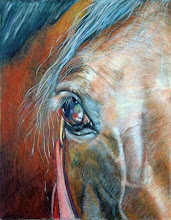At 4:01 on Monday, December 22, a black-billed magpie flew by my office window.
Magpies are common out here, but nowhere to be seen back east. As a child growing up mostly in the south, I had always wanted to see one, possibly because I watched the “Heckle and Jeckle” cartoons, but more probably because it was about the only bird I had not been able to match with its picture in a book of birds that belonged to my grandfather. The first time I ever saw a magpie was in France, two years ago this winter. I was fascinated then, and I am fascinated now.
Magpies belong to the crow family, and are said to be the only ones that recognize themselves in a mirror. The bird was referred to as “pie” (short for “piebald” most likely, because it is black and white) until the 16th century, when the feminine “mag” was added to the beginning (probably because it talks so much).
The magpie has many legends and symbols attached to it. The fact that it likes shiny objects gives it the reputation of being of thief, and it does have the habit of insinuating itself into other birds’ nests – and eating the eggs. An old English folk tale states that when Jesus was crucified on the cross, all of the world's birds wept and sang to comfort him in his agony. The only exception was the magpie, and for this, it is forever cursed, and in Scottish folklore, magpies were long reviled for allegedly carrying a drop of Satan's blood under their tongues. In the Middle Ages and during the witch-hunts in Europe, the bird was considered to be connected with witchcraft - just like crows, ravens, and black cats.
But I prefer to entertain the magpie’s more positive symbolism. The Chinese regard the magpie as sacred, and its singing foretells happiness and good luck. And Claude Monet obviously liked them.
So, to all my friends and family who reside on the east coast, down south, the mid-west, the west coast, or the continent, (and everyone else): may the magpie that you see in the painting above be your omen for a happy holiday season, and a very prosperous new year.
Magpies are common out here, but nowhere to be seen back east. As a child growing up mostly in the south, I had always wanted to see one, possibly because I watched the “Heckle and Jeckle” cartoons, but more probably because it was about the only bird I had not been able to match with its picture in a book of birds that belonged to my grandfather. The first time I ever saw a magpie was in France, two years ago this winter. I was fascinated then, and I am fascinated now.
Magpies, Versailles, 2006
Photo by author
Photo by author
Magpies belong to the crow family, and are said to be the only ones that recognize themselves in a mirror. The bird was referred to as “pie” (short for “piebald” most likely, because it is black and white) until the 16th century, when the feminine “mag” was added to the beginning (probably because it talks so much).
The magpie has many legends and symbols attached to it. The fact that it likes shiny objects gives it the reputation of being of thief, and it does have the habit of insinuating itself into other birds’ nests – and eating the eggs. An old English folk tale states that when Jesus was crucified on the cross, all of the world's birds wept and sang to comfort him in his agony. The only exception was the magpie, and for this, it is forever cursed, and in Scottish folklore, magpies were long reviled for allegedly carrying a drop of Satan's blood under their tongues. In the Middle Ages and during the witch-hunts in Europe, the bird was considered to be connected with witchcraft - just like crows, ravens, and black cats.
But I prefer to entertain the magpie’s more positive symbolism. The Chinese regard the magpie as sacred, and its singing foretells happiness and good luck. And Claude Monet obviously liked them.
So, to all my friends and family who reside on the east coast, down south, the mid-west, the west coast, or the continent, (and everyone else): may the magpie that you see in the painting above be your omen for a happy holiday season, and a very prosperous new year.








No comments:
Post a Comment